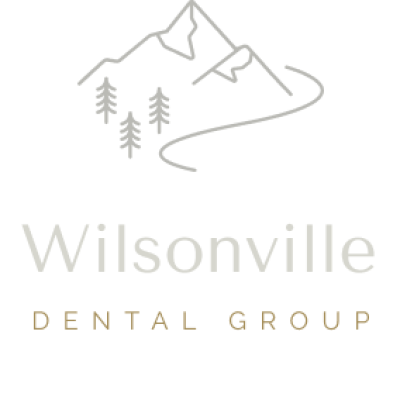Abfraction or the more scientific term “non-carious cervical lesion (NCCL)” is a common dental condition that can lead to tooth sensitivity, tooth loss, and other oral health issues. At Wilsonville Dental Group, we want our patients to understand the causes and treatment options for abfractions/ NCCL’s, so they can take proactive steps to protect their dental health.
What are Abfractions/ NCCL's?
Abfractions/ NCCL’s are small notches or grooves that develop on the tooth near the gum line. They are caused by the forces of clenching, grinding, or biting, which can cause the tooth enamel to wear away over time.
Symptoms of Abfractions/ NCCL's
The symptoms of abfractions can include tooth sensitivity, especially to hot, cold, or sweet foods and beverages. Patients may also experience pain or discomfort when biting or chewing, or notice a visible notch or groove on the tooth near the gum line.
Causes of Abfractions/ NCCL's
There are several factors that can contribute to the development of abfractions/ NCCL’s, including:
- Bruxism (teeth grinding or clenching)
- Malocclusion (misaligned teeth)
- Gum recession
- Overly aggressive brushing or using a hard-bristled toothbrush
- Acid erosion from consuming acidic foods or beverages
Treatment Options for Abfractions/ NCCL's
The treatment for abfractions/ NCCL’s will depend on the severity of the condition and the underlying cause. At Wilsonville Dental Group, we offer a range of treatment options to help our patients address abfractions/ NCCL’s and prevent further damage to their teeth.
- Dental Bonding:
Dental bonding is a minimally invasive treatment option that can be used to fill in small notches or grooves caused by abfractions/ NCCL’s. The process involves applying a tooth-colored resin to the affected area and sculpting it to match the shape of the tooth. The resin is then hardened with a special light and polished to a natural-looking finish. - Dental Crowns:
For more severe cases of abfractions/ NCCL’s, a dental crown may be recommended. A dental crown is a custom-made cap that is placed over the affected tooth to restore its shape, strength, and function. The crown is designed to blend in seamlessly with the surrounding teeth, and is made from high-quality materials such as porcelain or ceramic. - Orthodontic Treatment:
In some cases, abfractions/ NCCL’s may be caused by malocclusion, or misaligned teeth. Orthodontic treatment, such as braces or Invisalign, can be used to correct the alignment of the teeth and prevent further abfractions/ NCCL’s from occurring. - Prevention of Abfractions:
The best way to prevent abfractions/ NCCL’s is to practice good oral hygiene habits, such as brushing twice a day, flossing daily, and using a soft-bristled toothbrush. Patients should also avoid consuming acidic foods and beverages, or rinse their mouth with water after consuming them. Wearing a custom-made mouthguard at night can also be effective in preventing teeth grinding and clenching.
Conclusion
Abfractions/ NCCL’s can be a painful and frustrating dental condition, but they can be effectively treated with the right combination of preventive measures and dental interventions. If you are experiencing tooth sensitivity, pain, or discomfort near the gum line, it is important to schedule a consultation with your dentist to determine if abfractions may be the cause. At Wilsonville Dental Group, we are committed to providing our patients with the highest quality dental care and will work with you to develop a personalized treatment plan that meets your needs and goals.




